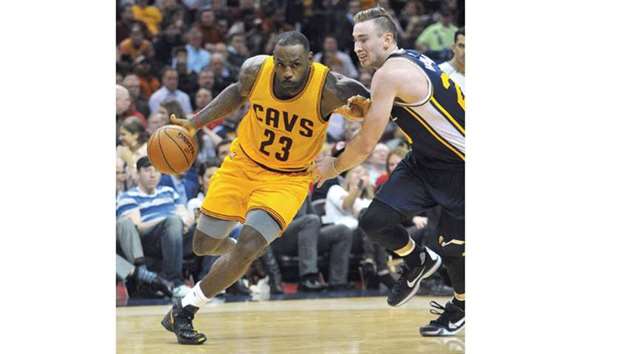The insult was biting, but nonetheless private, when LeBron James gave Pat Riley the cold shoulder during 2014 free agency, having by then made up his mind to leave the Miami Heat for a return to the Cleveland Cavaliers. But it also came after the games were played, as a free agent, during the offseason.
As odd as it sounds in retrospect, James afforded Riley, Micky Arison and Erik Spoelstra the ultimate respect until that franchises-changing decision.
Parse the body language or the comments from James during that run to a fourth consecutive NBA Finals, if you choose, but there barely was talk of an eventual departure during that season, even if James had previously mentioned the possibility of a return to Cleveland.
There was an appreciation of the moment, and, seemingly of ownership, the front office, teammates, the coaching staff. Then think back to the departure from Cleveland in 2010 and the yearlong traveling circus endured by the Cavaliers, as they visited potential suitors during the regular season, James essentially playing home games at Madison Square Garden and other potential landing spots.
Some still are trying to figure out what happened to the Cavaliers in that six-game loss to the Boston Celtics in the 2010 Eastern Conference semifinals.
It certainly wasn’t as simple to explain away as the air conditioning going out in San Antonio in Game 1 of the 2014 NBA Finals. Which brings us back to the Cavaliers and this past week, and the deafening silence from the one person who could make this a far easier upcoming ride for Cleveland.
It doesn’t matter if you agree or disagree or even dismiss the tweet from long-time NBA insider Chris Sheridan when he posted, “NBA source said today: ‘This will be LeBron’s final season in Cleveland. He is 100 percent leaving. Relationship with owners beyond repair.’ “
What mattered is that while James’ inner circle went into damage control (and nobody does damage control better that James’ inner circle), there wasn’t a peep from James. Because this is 2009-10 all over again, James seemingly uncertain about the championship possibilities of his current venue.
Granted, in 2013-14, the Heat were coming off consecutive championships, so any talk of departure would have derided as fools’ speculation. But this speculation comes with Kyrie Irving wanting out, Cleveland’s front office being restructured and the relationship with ownership seemingly as uneasy as ever.
For the Heat, the threat came late, but also in ample time to disrupt the future, with Shabazz Napier, Josh McRoberts and Danny Granger standing as Exhibits A, B and C. Imagine what 11 months of that would be like. And there is no alternate reality.
James not only holds a no-trade clause for the coming season but also a $35.6 million player option for 2018-19. It’s not as if the Cavaliers can dictate any terms.
So at this very moment, Irving is holding the Cavaliers hostage with two years remaining on his contract, James with at least one year. The end game could be as simple as James taking to any of his social-media outlets and proclaiming, “I’m not going anywhere.” (It’s probably the best tack even if he is going somewhere.)
Of course, he never said that in 2010. Or 2014. And then he left. Those three weeks between the 2014 NBA Finals and James’ return to Cleveland arguably were the most difficult of Riley’s career.
They also were three weeks when James exhibited as much power as any NBA player has in years, to the point that it took every last dollar of the Heat’s 2017-18 spending allotment in order to finally unload McRoberts’ contract last month.
And now it’s game on again. This time the Heat are on the outside, James’ only future trips to South Florida assuredly to come as opponent or vacationer.
But there remains a voyeur element to the process, one of been there, seen that, had that done to us.

Cleveland Cavaliers' LeBron James (left) not only holds a no-trade clause for the coming season but also a $35.6 million player option for 2018-19.
